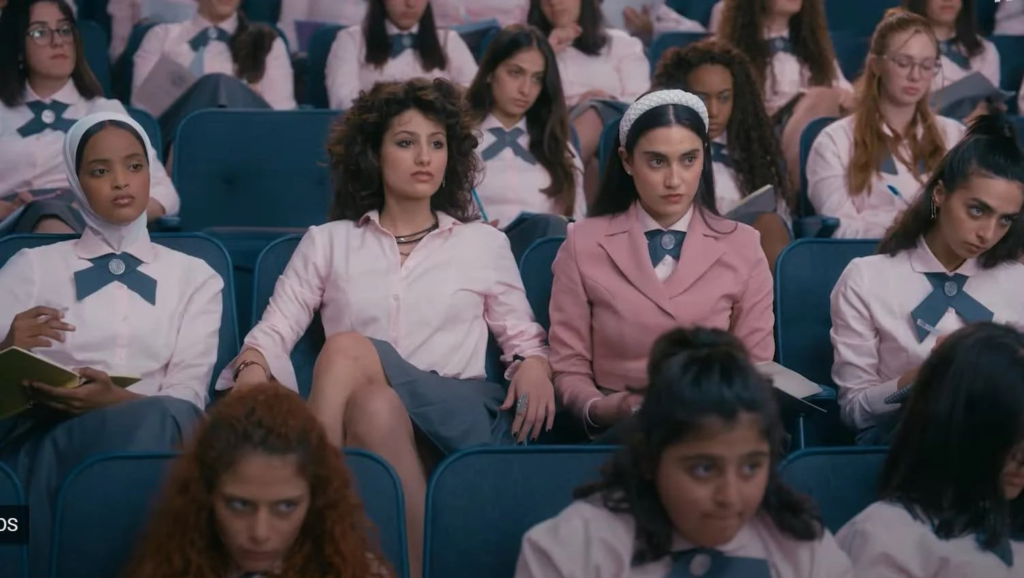After a successful first season of Al-Rawabi School for Girls, season 2 was released on Netflix on Thursday, February 15th. After the release of the trailer, many fans were dissatisfied with the change in cast and storyline. The attachment fans had built to the characters and the plotline made them eager to know what happens next to each character, especially after the season ended with a cliffhanger. The idea of a new cast didn’t excite fans, raising concerns about how the producers would cover all the plot holes smoothly, aside from introducing a new story.
What made Al-Rawabi School for Girls a captivating watch and a number 1 program across the Mena Region in the first season is how it covers a huge range of topics that we, as teenagers, have experienced at least once in our lives. If not us, then a friend, a classmate, or someone we’ve seen or heard about in our high school building.
The show doesn’t cover only one aspect of the story; it presents us with all the sides we need to see to understand things from different perspectives and change, as well as raising awareness on topics we’ve long avoided through actors who speak our language, believe in our principles, and are willing to shed light on various important messages and change the narrative.

Less than 48 hours after the second season’s release, all the fans who were concerned it wouldn’t be as good as the first one might now be assured that this season might be even better. Arab teenagers across the world have now binge-watched the six episodes in one sitting, and this season has left them all stunned. Tima Shomali and Shirin Kamal have outdone themselves once more with a heartbreaking storyline and a very enlightening message.
Season 2 explored multiple crucial subjects prevalent among high schoolers and of utmost importance to address and discuss, including eating disorders, purging disorders, blackmailing, body image, and suicide. As we walk through the lives of each character, we understand that every one of them is struggling with several issues, many of which are psychological, such as an eating disorder.

Eating disorders are conditions relating to more than just the act of eating; they’re complex mental illnesses that can cause individuals to consume food as an unhealthy habit. There are several signs of ED, such as dramatic weight loss, preoccupation with weight, food, and calories, abdominal pain, or an intense fear of weight gain. Several types of ED can affect people of any age, and they may result in death if not treated by a professional therapist or psychologist.
Other characters are facing threats of exploitation and blackmailing, a subject our community has been educated on for the last several years. Blackmailing is a serious crime, especially involving a minor. Social media accounts and influencers have been actively raising intense awareness on how to deal with blackmail and all the methods to report it.

However, on several occasions, students face challenges in reporting instantly, driven by concerns such as fear of parental or societal reactions or simply shock from the occurring situation. It’s essential to provide space for the victims, allow them to speak up without any form of judgment, and emphasize that reporting is an important step.

The show emphasizes the role of adults in supporting and understanding students and children and guiding them through overcoming challenges through the evolution of a teacher’s character.
Season 2 enlightened the audiences on subjects we hear about almost daily with a captivating plot, an exceptional performance from the actors, as well as answers to some of the questions viewers had following the finale of the last season. Will the audiences be able to love the new class the way they loved the prior one? We might not know now; however, one thing viewers are sure of is that the ending of season 2 was devastating.













